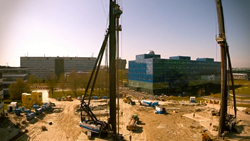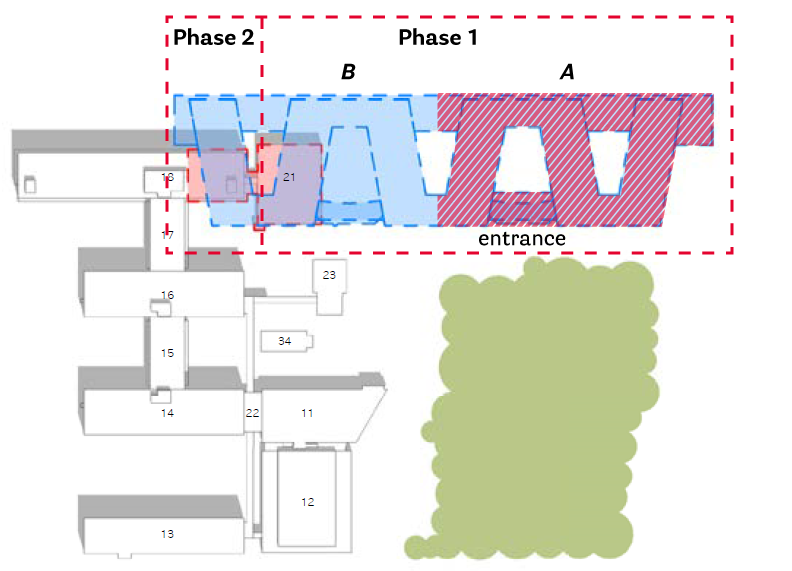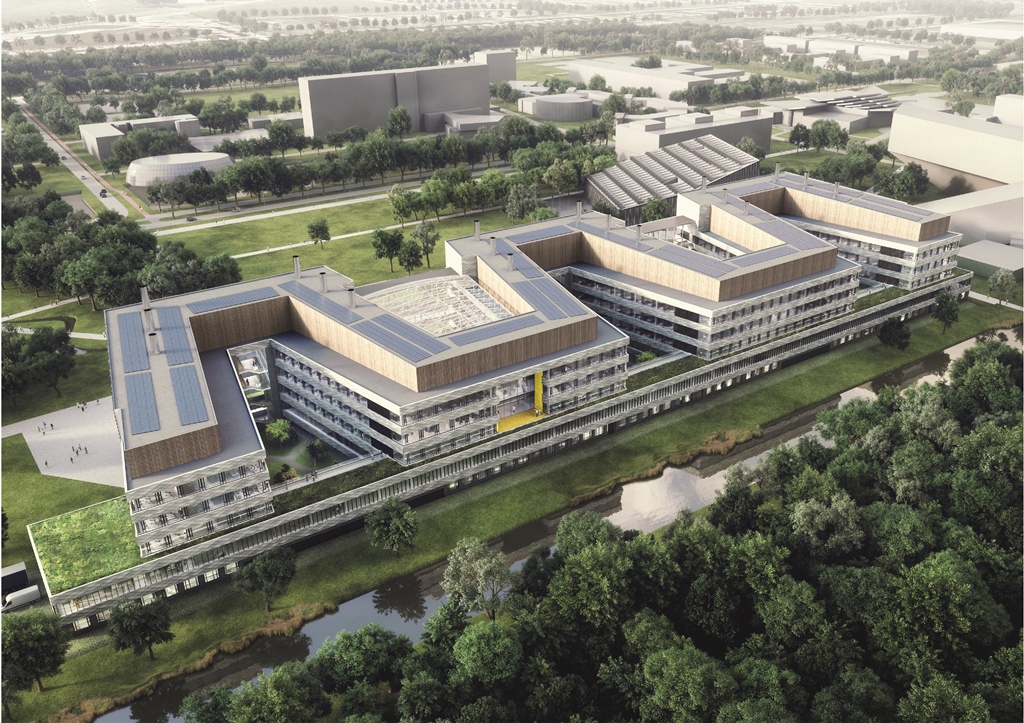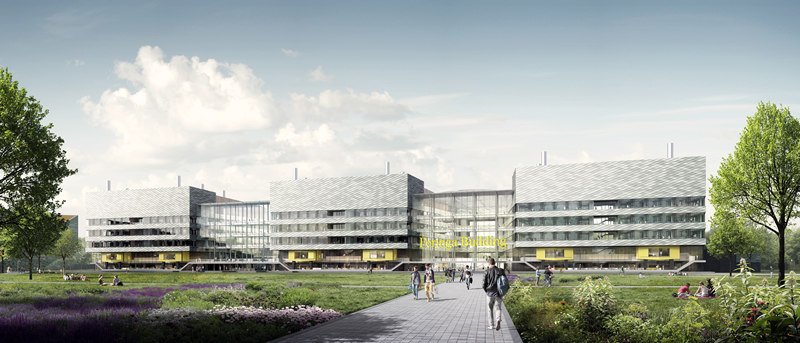Initial construction phase of Feringa Building on Zernike Campus to start on 1 July
On 1 July, contractor Ballast Nedam will start the first construction phase of the new Feringa Building of the University’s Faculty of Science and Engineering. The building on Zernike Campus will take the form of three connected V-shaped wings and will provide space for around 1,400 students and 850 staff members.

The implementation of the foundations will mark the start of the construction phase in early July. Since the building work will take place next to the current building, construction will be carried out with as little vibration and noise nuisance as possible. The pile foundations will be constructed by boring holes into the ground, reinforcing them and then pouring concrete into them. This method of installing the pile foundations will result in much less nuisance than would driving the piles into the ground, although this method does mean that there will be more construction traffic, including concrete mixers.
Around 2,000 concrete screw piles will be made for the foundation of the Feringa Building, starting on the south end of the construction site.

Construction schedule
The construction process will proceed in phases (see image). Phase 1A will be fully completed by mid-2021, to allow the first research groups of the Faculty to take up residence in the Feringa Building. Next, Phase 1B will be completed, after which sections 17 and 18 of the Nijenborgh 4 building will be demolished to make space for the implementation of Phase 2. This will start at the beginning of 2022, to be completed in the summer of 2023 .


More news
-
17 February 2026
The long search for new physics
-
10 February 2026
Why only a small number of planets are suitable for life
